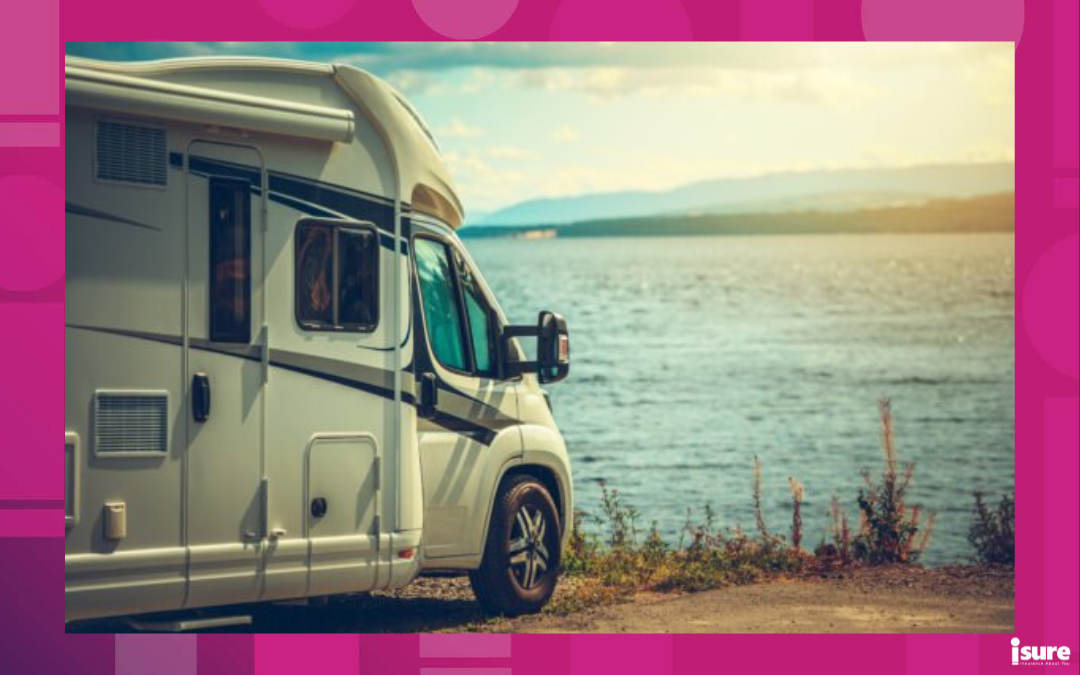If you are thinking that after months of being in lockdown, you want to get out and explore Ontario, an RV (Recreational Vehicle) is a great way to embark on your journey. But you may be wondering, ‘Do I need to have RV coverage?’ In this article, we break down the classifications of RVs with a focus on RV insurance. We also answer some of the FAQs surrounding RVs to help you choose the best RV for your next outdoor adventure.
Like any other vehicle, you’ll want to make sure that you and your passengers have protection in case of an accident. This means you will need to get insurance for your RV. But what type will you need? There is a distinct difference between most insurance policies and RV insurance, as there is an array of uses, models, and various liabilities that are specific to RVs.
Benefits of RV insurance in Ontario
Are you driving a motorhome or are you towing? Do you live in it all year round? What about coverage inside the RV, or what if someone trips and breaks their leg while visiting your RV? Since your RV is more than just your vehicle, you need a policy that covers more than just typical car insurance. Consider the following:
- You store things in your travel trailer that you wouldn’t keep in your car, including jewelry, a computer, television, outdoor camping gear or video camera.
- When parking your RV at a campsite, you’re liable for other people’s safety around your vehicle.
- If you have an accident while travelling, you’ll need a place to stay while the RV is in for repairs.
Without an Ontario RV insurance policy, none of these will have coverage in the event of a loss.
Three categories of RV insurance coverage
RV and travel trailer insurance costs can vary greatly. There are three basic categories of RV insurance coverage, and what differentiates each category is the “how” and “when” the RV is moving:
RV’s & Motorhomes: They are the motorized recreational vehicles that can be driven to your destination and come in three classifications:
1. Class A motorhome
Like a large luxury bus, Class A is the largest of RV motorhomes. They come with many options, like kitchens, bathrooms, entertainment centres and central-control heating and air conditioning.
2. Class B motorhome
Also known as camper vans or conversion vans, equipped with kitchens, washrooms with showers and sleeps up to four people. They are easy to drive, fit in a normal parking space, easy on fuel, and can be used as a second vehicle.
3. Class C motorhome
A popular choice for many RV adventurers. The cab-over-bunk design is built on a commercial cut-away van chassis and comes with all the amenities of any motorhome.
* If you own a class A, B or C motorhome in Ontario that is self-propelled, then you are legally required to have insurance.
The last two categories do not need their own insurance and can be included on your auto insurance policy:
- Trailers – These are non-motorized and include many varieties, such as fifth wheels, travel trailers, truck campers and tent trailers.
- Park Trailer Models – These are only on the road during the initial move to the RV park or other rental pad location. These are to be used only as a recreational home.
If you own an RV, like a travel trailer, that is hitched to your towing vehicle, then the insurance coverage and liability extends from the towing vehicle.
When considering getting insurance coverage for your RV, it’s important to note that most RVs are insurable. Each motorhome class (Class A, B and C) will need separate auto insurance. If you are only using standard auto insurance for your motorhome or travel trailer, your coverage will have limits and will not cover features, like roadside assistance or contents coverage.
Some RV insurance policies will cover the contents of your RV inside and out as part of the standard policy coverage. However, you can typically pay an extra premium to cover your personal belongings inside the RV.
What type of insurance do I need for my motorhome?
Although standard auto insurance will cover you and your RV on the road, it will not cover you when you are parked. Motorhome insurance provides you with peace of mind, knowing that your RV and all your belongings have coverage when you are not inside and enjoying the outdoors. For any vehicle that you can drive independently, you will need RV insurance. You will need a minimum amount that is similar to car insurance and you may also need home insurance if you live in your RV or motorhome.
RV and motorhome policies come in a variety of categories
There are as many types of RV and motorhome policies to suit each unique owner, and you can tailor them to best suit your lifestyle:
- Live-in: You live in your RV or motorhome full-time and it’s your primary residence.
- Seasonal: You use it seasonally during the summer months.
- Temporary: You only need coverage for a short period of time, like the length of your holiday.
These policies provide protection for your vehicle, the driver, passengers and the contents in it. Limits will vary depending on your insurer, policy type and model. Older RVs may be subject to some restrictions.
Standard policies include: Accident Benefits coverage, Third-Party Liability and Direct Compensation Property Damage (DCPD).
Customizing your RV insurance
There is a wide range of additional protection you can add-on to your policy, including collision and comprehensive protection. This will give you protection for loss or damage because of fire, lightning, and weather damage. According to GORVing.ca, here are some specializations your RV insurance could include:
Total loss replacement
Applicable to buyers of new RV’s, it replaces the unit with a similar unit, even if the replacement costs more than the original.
Replacement cost of personal belongings
RV policies give you the option to specify a limit to include all of your personal belongings destroyed by most events.
Full-timer liability
Offers liability coverage similar to homeowner’s insurance when the RV is parked and is used as a residence. (Park Trailer Models)
Campsite liability
Similar to full-timer liability, but designed for short-term vacationers.
Emergency expenses
Reimburses expenses related to living outside the RV while it is being repaired.
Higher liability limits
Because most RV’s are much larger than cars, they have the potential to cause a significant amount of damage in a mishap. Higher limits provide greater financial protection after an unfortunate incident.
Medium duty tow trucks
Covers trucks over one ton when used to tow a trailer or fifth wheel.
Suspend collision coverage when in storage
When the RV is in storage, you can suspend portions of the policy that apply only when the RV is moving on the road, such as collision coverage. This is a cost-saving option because you are not paying for unnecessary coverage.
Upgraded emergency roadside coverage
How to save on RV insurance
Most insurers will also provide various discounts to your RV insurance policy if you have other types of policies with them. Common discounts available include:
- Bundling your home, vehicle and RV
- Satellite tracking enabled on your RV
- Installing or having a security device in your RV
If you’re looking for must-see travel locations in Ontario this year, isure has got you covered in more ways than one. We understand that planning the perfect road trip itinerary can be difficult, so we’ve conducted the research to help get you started. Check out our article on the Top 5 RV road trip destinations across Ontario!




